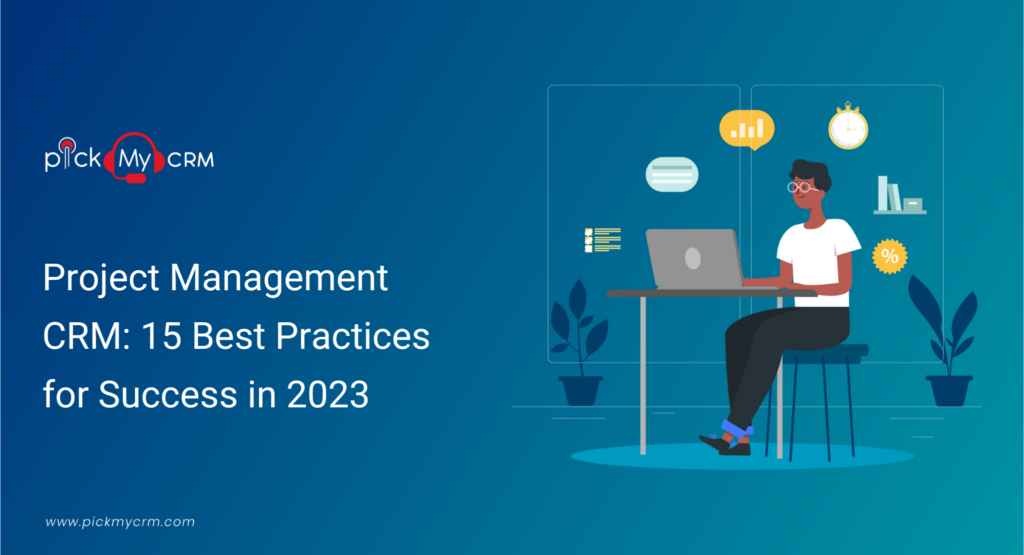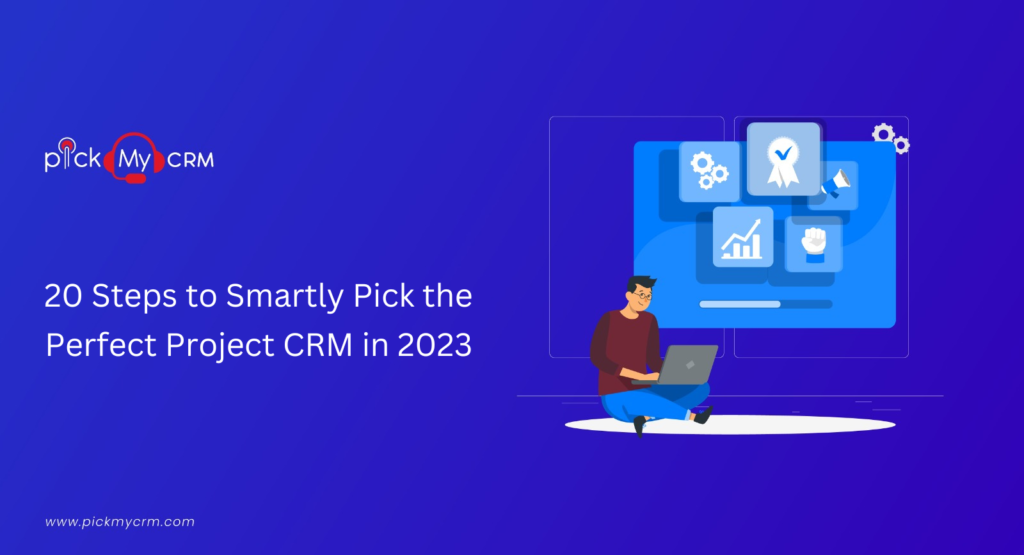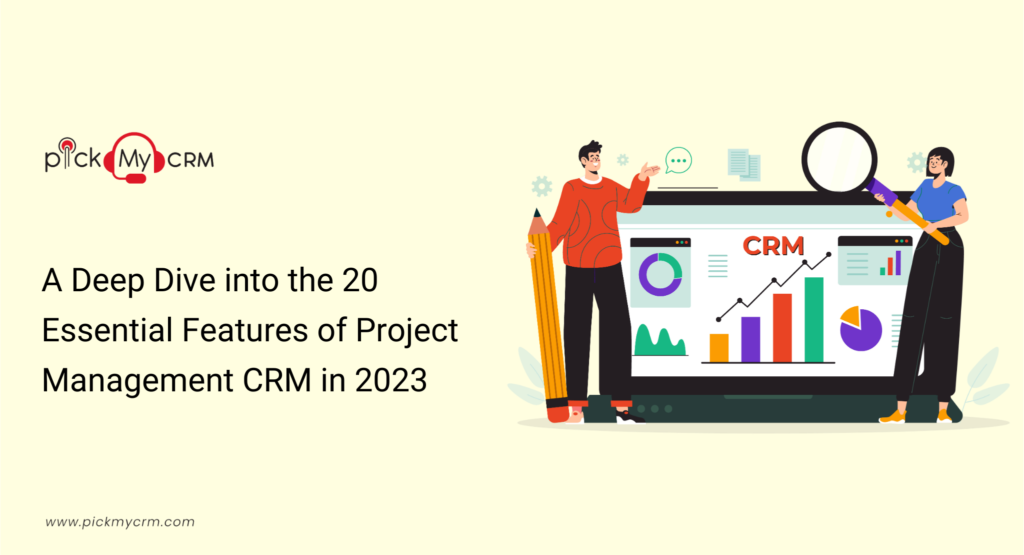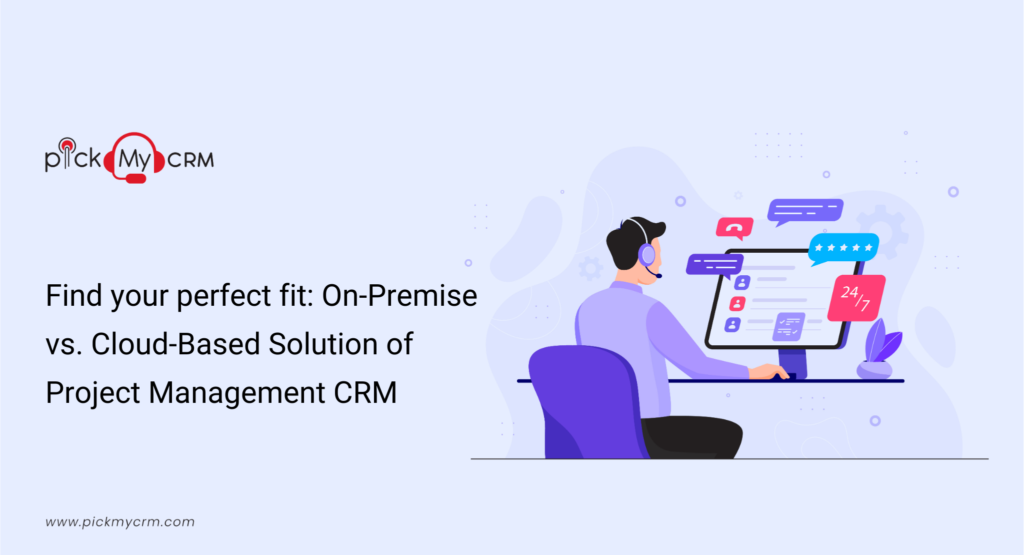Mastering CRM Project Management: 15 Best Practices for Success in 2023
15 Best Practices of Project Management CRM
Amidst the project orchestration, where tasks, timelines, and teams converge like the notes of a Symphony, the Project Management CRM is the conductor's baton. This digital maestro harmonizes complexity, guiding projects to a crescendo. As we step into the symphonic realm of refining this melodic composition, let's reveal the captivating best practices that transcend the mundane and embrace the exceptional.Strategic Alignment: The Prelude to Excellence
- Craft a Comprehensive Project Management Strategy: Define project goals, scope, and stakeholders' roles.
- Align CRM with Organizational Objectives: Ensure the CRM serves the larger mission and goals.
- The Dance of Strategy and CRM Integration: Seamlessly integrate CRM with project strategy for synchronized execution.
Robust Data Management: Notes of Precision
- Centralized Data Repository for Unified Vision: Maintain a single source of truth for project data.
- Metadata Management for Insightful Navigation: Organize data through categorization and tagging.
- Ensuring Data Integrity and Accessibility: Regularly audit and secure data access for accuracy and reliability.
Customization Mastery: Tailoring for Triumph
- Adapting CRM Workflows to Project Lifecycle: Customize CRM processes to align with project stages.
- Leveraging Custom Fields and Objects: Tailor CRM data structure to capture project-specific details.
- Flexibility without Complexity: Enable customization without overcomplicating workflows.
Seamless Collaboration: Chords of Unified Teams
- Real-Time Communication Integration: Facilitate instant communication through CRM integrations.
- Cross-Functional Collaboration Channels: Break silos by enabling collaboration across teams.
- Breaking Silos, Building Bridges: Cultivate an environment of teamwork and information sharing.
Agile Adaptation: Navigating Dynamic Waters
- Embracing Agile Methodologies in CRM: Align CRM processes with agile principles for flexibility.
- Iterative Progress and Continuous Improvement: Iterate project elements for ongoing enhancements.
- Agile Tools and CRM Integration: Integrate agile tools within the CRM for cohesive project execution.
Resource Optimization: Balancing the Ensemble
- Predictive Analytics for Resource Allocation: Utilize CRM insights for efficient resource allocation.
- Task Prioritization and Workload Distribution: Balance workloads to optimize team productivity.
- Efficient Resource Management Insights: Leverage CRM data to optimize resource allocation strategies.
Milestone Tracking: Mapping the Melody
- Gantt Charts and Visual Milestone Representations: Visualize project timelines and milestones.
- Tracking Progress and Anticipating Delays: Monitor progress to identify potential delays.
- Proactive Issue Resolution for Uninterrupted Flow: Address issues promptly to ensure smooth project flow.
Risk Mitigation: Safeguarding the Symphony
- Identifying and Assessing Project Risks: Identify potential risks and assess their impact.
- Risk Impact Analysis and Contingency Planning: Plan contingencies to mitigate adverse effects.
- Integrating Risk Management within CRM: Integrate risk management processes within the CRM for streamlined tracking.
Performance Metrics: The Crescendo of Analysis
- Key Performance Indicators (KPIs) Measurement: Define KPIs to measure project success.
- Real-Time Dashboards for Project Insights: Visualize project performance through interactive dashboards.
- Data-Driven Decision-Making and Optimization: Base decisions on CRM-derived insights for improved outcomes.
Client Engagement: Harmonizing Relationships
- Use CRM for timely and personalized client interactions.
- Build strong client relationships through tailored communication.
- Evaluate the impact of enhanced client engagement on project success.
Change Management: Choreography of Adaptation
- Respond swiftly to market shifts with CRM insights.
- Embrace change as an opportunity for innovation.
- Modify CRM workflows to align with evolving project needs.
Data Security: Guarding the Melody
- Assign role-based data access and permissions in CRM.
- Implement encryption and robust security measures.
- Maintaining compliance with industry regulations necessitates conducting regular audits and consistently upholding adherence.
Training and Onboarding: Orchestrating Familiarity
- Conduct comprehensive user training for Effective CRM usage.
- Seamlessly onboard new team members onto the CRM platform.
- Empower users with the skills needed to maximize CRM potential.
Continuous Learning: The Overture of Improvement
- Analyze past projects using CRM data for valuable insights.
- Establish feedback loops for iterative project refinement.
- Continuously evolve processes based on CRM-derived knowledge.
Integration Elegance: The Harmonic Ensemble
- Integrate CRM seamlessly with existing tools and systems.
- Link CRM with communication platforms to enhance collaboration.
- Streamline data flow between the CRM and another system for efficiency.




